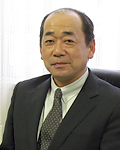
General Manager, Multicultural Community Education and Research Project Office
Gunma University Administration Officer (Education and International Exchanges)
Osamu Ishikawa
石川 治
At Gunma University, we are working to enhance and develop an integrated, university-wide initiative on the development of human resources to contribute to the creation of a fully-fledged multicultural society (titled the Multicultural Community Education and Research Project). A Multicultural Community Education and Research Project Office has been established within the university, and is responsible for facilitating the smooth operation of the Multicultural Community Advancement Officer training program. In this section we introduce the people who work in the Office as instructors in the program.
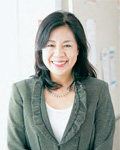
Head of Planning and Operations
Gunma University/Gunma Prefecture Multicultural Community Advancement Officer Training Program Professor, Gunma University, Organization for Higher Education and Student Service, Higher Education Center
Gunma University/Gunma Prefecture Multicultural Community Advancement Officer Training Program Professor, Gunma University, Organization for Higher Education and Student Service, Higher Education Center
Megumi Yuki
結城 恵
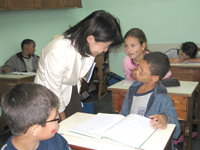
In Japanese society to date, the focus has been on "commonality" among individuals, and the resulting solidarity, cohesion and uniformity has been a source of strength. The growing pace of globalization, however, means that Japanese society must now turn its attention to the task of harnessing the "diversity" among its constituents. We must identify and understand diversity among people from a range of angles, think about how it may be used, and put the findings into practice. The aim of this project is to cultivate the skills of analysis, planning and implementation required for these tasks through cross-disciplinary and inter-community partnerships, and thereby to bring a new dynamism to Gunma.
For example, many schoolchildren in our prefecture grew up in different societies and speak different languages. Schools provide many forms of assistance for these children
in adjusting to Japanese school life and realizing their potential. Becoming involved in these activities made me aware of the diversity of their approaches in understanding and building up interpersonal relations, not only across different nationalities and cultures, but between each and every child. I look forward to working together with the students in this program to reflect on and apply the idea of "multicultural education" in order to recognize the great diversity among children in the classroom and make best use of that diversity.
■Profile
Completed a doctoral course at the University of Tokyo. Appointed Full-Time Lecturer in Faculty of Education, Gunma University in 1996. Appointed as a Professor in 2009. Has held this current position since June, 2012. Specializes in educational sociology. Uses ethnographic methods to explore the issue of multicultural coexistence from the standpoint of ordinary citizens. Has conducted field surveys including a survey on school non-attendance (joint project with the Oizumi Municipal Board of Education), and a nationwide survey of South American schools in Japan (commissioned by the Ministry of Education, Culture, Sports, Science and Technology–MEXT). Uses the findings from such research in developing programs and activities in collaboration with local communities. Became Head of Planning and Operations for this program after conducting the Multicultural Coexistence Research Project from fiscal 2002-2004 (MEXT Special Support Program for Community Engagement) and a project on Developing Human Resources to Enable the Creation of a Society founded on Multicultural Coexistence from fiscal 2005-2008 (MEXT Good Practice program). Also serves on bodies including the Ministry of Land, Infrastructure, Transport and Tourism's Expert Forum on Planning for the Extended Tokyo Metropolitan Region, the MEXT Policy Forum on the Education of Children of Long-Term Foreign Residents and the Working Group of the Education of Brazilian Schools.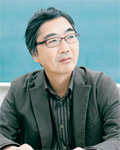
Full-time lecturer, Multicultural Community Education and Research Project Office
Kazumi Yamaguchi
山口 和美
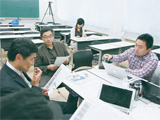
In this lecture, specific advices such as directions for solution and debatable points regarding planning of students are given to
them.
A number of foreign people started to live in our community. This phenomenon demands
development of social environment that enables us to live together under the idea of "Multicultural
Coexistence". This is the time when we need to develop legal and social systems that can cover
foreign residents.
In the age of advancing globalization, "How to develop multicultural community?" is an issue each
one of us should think about.
In this training program, we would like to review the society we live in now in terms of a
multicultural society and through the accumulation of surveillance studies and practices, we will
seek the ideal development of multicultural society with students.
■Profile
In 1977, graduated from Tokyo University of Foreign Studies (Chinese Studies) and began work at the Gunma prefectural government. Was in charge of administration of foreign residents as staff of Gunma Prefecture International Affairs Division at the time of revision of the Immigration Control Act in 1990 and development of the Council for Cities of Non-Japanese Residents in 2001. Experienced drastic changes going on in multicultural situations in the community. In 2005, became a general manager at the time of the inauguration of the Center for Multicultural Community and participated in the society for promoting a multicultural society established by the Ministry of Internal Affairs and Communications as a representative of local government. In 2008, was appointed as a director of the International Affairs Division and was in charge of this project in the prefecture. In 2012, left the Gunma prefectural government and was assigned to work on this project as a lecturer of Gunma University.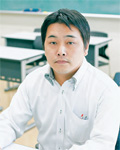
Full-Time Assistant Professor, Multicultural Community Education and Research Project Office
Takashi Matsuo
松尾 隆司
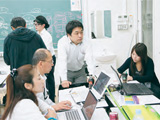
Analyze collected information and issues in community are drawn
In my previous job, I worked on practice, surveillance and research regarding the multicultural
community involving local residents and foreign residents in Shiga Prefecture. I remember that I was
envious of advanced approaches to multicultural community in Gunma Prefecture at that time. At a
place conducting the abovementioned advanced approaches, learning to become multicultural
community advancement officers for people working in various fields is beneficial for not only
yourself but also for the creation of new industries in terms of the multicultural community.
We look forward to seeing people who have high aspirations and aims to become multicultural
community advancement officers. We expect you to become human resources who can solve the
problems existing in the community and workplaces after completion of this training program.
■Profile
After earning credits in a doctoral course at the Ryukoku University, Department of Intercultural Communication, worked at Shiga Prefecture Konan International Association and Shiga Prefecture Multicultural Community Town Management Center. Has held the current position since April 2010. Specializes in intercultural communication and sociology. Conducts surveillance studies of work and livelihood of foreigners in Japan at populated residential areas with non-Japanese residents and researches the multicultural community.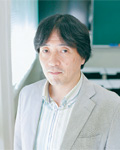
Adjunct Lecturer, Multicultural Community Education and Research Project Office
Professor, Otsuma Women's University Career Education Center
Professor Emeritus, Gunma University
Professor, Otsuma Women's University Career Education Center
Professor Emeritus, Gunma University
Masahide Teraishi
寺石 雅英
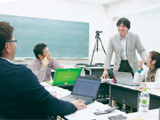
To obtain the ability to solve issues in the community, involving various entities in the local community, we emphasize discussion
to reinforce plans in terms of practicability and theories.
Based on experience as a board member of listed companies, a management consultant of service
industries and a coordinator of town management projects, my mission is to improve project
managing abilities. In addition to that, I expect students to obtain negotiation capabilities, abilities to
involve other people in project and information transmission capacities. Those are essential skills for
Multicultural Community Advancement Officers. One of the most difficult projects to conduct is one
such as a local contribution activity that does not accept financial incentives or hierarchical
relationships. To break through this difficulty, we need to collect members who will sympathize with
the philosophy of the projects, and can improve the environment where members work towards the
same goal, respecting each other. After completion of the program, students are expected to have
capabilities to smoothly play such difficult roles.
■Profile
After earning credits in a doctoral course at the Hitotsubashi University Graduate School of Commerce and Management, was appointed as an associate professor at the Nagoya University of Commerce and Business, and then a professor at the Gunma University Faculty of Social and Information Studies. Has held current position since 2011. During that time, served as a visiting research officer or a research committee member of the Postal Services Research Institute, the Japan Research Institute of Asset Securitization and the Research Institute of Construction and Economy, an auditor of the Council for International Venture Companies and a board member of the Japan Society for Applied Management. In 2001, was appointed as a first outside auditor of a JASDAQ listed company (SE Corporation) in Japan as a faculty member of a national university and served as an outside auditor of a listed company provides total entertainment (Koshidaka Holdings). Actively works as a consultant of regional development projects and corporate regeneration of service-related companies throughout the country.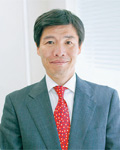
Adjunct Lecturer, Multicultural Community Education and Research Project Office
Professor, Otsuma Women's University Career Education Center
Adjunct Lecturer, Gunma University Faculty of Social and Information Studies
Professor, Otsuma Women's University Career Education Center
Adjunct Lecturer, Gunma University Faculty of Social and Information Studies
Toshiya Inoue
井上 俊也
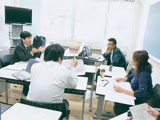
Using the methods learned in the lectures, planning is made based on the purpose of students. Following question-and-answer
sessions improve the quality of the results.
The words, "internationalization" and "globalization" remind us of living overseas. However, that
is not only internationalization and globalization. To accept and help people from abroad is also
internationalization and globalization. In this situation, cooperative skills with people of various
cultures and backgrounds are needed. Accepting multicultures and solving issues in the community
are not only for people working with foreigners and foreign companies. We found the necessity of
multicultural coexistence, seeing absorption and merger of companies, internal organization
restructuring and the Great Merger of the Heisei Era (although it slows down now) in the drastic
changes of economic and social environment. Would you like to become "Multicultural Community
Advancement Officers"?
■Profile
After graduation of Keio University Faculty of Economics, joined the Nippon Telegraph and Telephone Public Corporation (now Nippon Telegraph and Telephone Corporation), Graduated from HEC in France, had worked for NTT Group for 26 years such as Nippon Telegraph and Telephone Corporation, NTT France, Nippon Telegraph and Telephone East Corporation (OMA), Nippon Telegraph and Telephone West Corporation, and NTT Comware Corporation, Mainly worked in sales and marketing, planning, and international affairs. Since 2010 as a professor at Otsuma Women's University Career Education Center, has planned and operated the Otsuma Management Academy (OMA). Since 1998 has concurrently worked as a lecturer at Gunma University Faculty of Social and Information Studies, Has been closely working on "Multicultural Community Advancement Officer" Training Program since 2011, Specializes in sports business and marketing.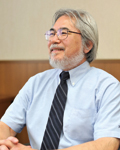
Professor, Faculty of Social and Information Studies, Gunma University
Yuichi Sunakawa
砂川 裕一
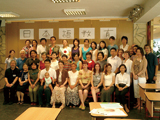
Professor Sunakawa is providing Japanese-language education abroad.
It seems that the time has passed that internationality was questioned in the cultural, political and economy fields, interdiscipline in academic and technical fields, inter-occupational relationship in various occupational fields, and inter-citizen relationship and inter-humanity among a diversity of people. This way of thinking is where the specialties and characteristics of each country, community and academic field and occupation are respected, while their endemism is utilized, and mutual understanding and mutual cooperation are required.
As for coexistence of various cultures in an international society, coexistence between people and nature, and multicultural coexistence in a community, their ways of thinking probably overlap.
When we go deep into the details of social systems, many items which require a variety of considerations accumulate to realize the "inter=symbiosis =coexistence". The difficult problem of social sharing of different languages or multiple languages is an urgent issue. I would like the students to become a workforce where their perceptiveness, judgment and ability to make decisions spread throughout broad intellectual and social viewpoints.
■Profile
Graduated from Physics, Faculty of Natural Science (at present, Physics), the College of Liberal Arts, International Christian University. Enrolled in Comparative Culture, Graduate School of Comparative Culture, International Christian University after stay in New Zealand for one year, and studied philosophy, history of scientific thought and Japanese teaching methods. After completing the master's program, taught "Japan affairs" to foreign students as a part-time professor at Osaka Prefecture University and Osaka University of Foreign Studies. About 20 years ago, assumed the head of teaching "Japanese and Japan affairs" at Faculty of Liberal Arts, Gunma University. When Faculty of Liberal Arts was abolished and Faculty of Social and Information Studies was established, moved to Faculty of Social and Information Studies as the head of teaching "Foundation of comparative culture" and continues up to today. Specialties (Not comfortable about being asked about his specialties) are philosophy, foundation of comparative culture, language culture education, and Japanese and Japan affairs education, etc.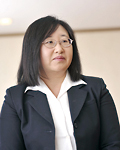
Professor, School of Health Sciences, Faculty of Medicine, Gunma University
Yumi Sato
佐藤 由美
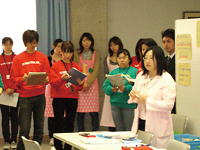
I was shocked when I first learnt from Megumi Yuki that there are some schoolchildren in Japan who are not receiving health assistance at school because their schools are not approved by the government as a part of our compulsory education system. Since 2002,together with Professor Junichi Tamura from the Graduate School of Medicine and many other individuals from both within and beyond our university, I have worked on the provision of medical examinations and health advice to children enrolled in schools for foreign nationals in Japan. Every child should be entitled to receive assistance in order to stay healthy, regardless of nationality.
Each one of us can experience both good and poor health at various times in our lives in the course of work, parenting, care provision, and so on. People working in the field of health care pursue human health and happiness through the provision of support tailored to different ways of life and in line with personal values and outlooks. Local communities face a variety of health and medical care-related challenges, and we need people who can work together with community members to address each and every challenge in an attentive and tenacious manner. Let's learn together, and put it into practice!
■Profile
Began her career in education as an assistant in Chiba University's School of Nursing after working for four years for Gunma Prefectural Government as a public health nurse. Appointed Lecturer at Gunma University in 1999, and took up her current position in 2006. Specializes in community nursing centered on education, research, and practice in the field of support for public health nursing. Collaborates with practicing public health nurses to operate model projects and training programs in fields such as community-based health promotion activities through citizen participation, and improvement of health guidance technique for prevention of life style-related diseases.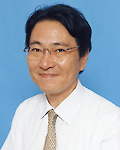
Professor, Graduate School of Medicine, Gunma University
Junichi Tamura
田村 遵一
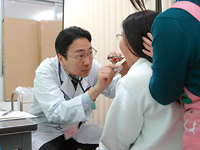
The term "globalization" is heard nowadays at every corner of our society. In addition to goods and money, it is now possible for people to move easily across national borders. The number of foreign nationals residing in Japan, and the number acquiring Japanese nationality, will surely continue to grow. The strength of a country's unique culture can be measured against the question of whether people with differing cultural backgrounds can live together in harmony within it. Before disputes arise over cross-cultural differences, it is important that we take a forward-thinking approach and develop systems and personnel for proactive advancement of multiculturalism.
Let's work together to make our region a model for the rest of Japan and the world. My main field of activity is medical care. I look forward to working with you all.
■Profile
Frequented the laboratory of parasitology as a student and developed an interest in immunology. Graduated from Gunma University Faculty of Medicine in 1982. After completing clinical training, studied at the National Institutes of Health in the United States from 1988 to 1990. Returned to Japan to become an assistant in the Third Internal Medicine Department at the Gunma University Hospital. Worked in that department (today the Department of Hematology) on immunological and hematological research, and as well as treating patients with conditions such as leukemia and AIDS. Became a Lecturer in 1997, and then a Professor of the General Medicine Department in October 1999. Current responsibilities include Deputy Head of Medical Science (and Chair of the Educational Affairs Committee), Deputy Hospital Director (responsible for community medicine), and Head of the Gunma Medical Association. Subsequently appointed Head of the General Medicine Department, and now works across a broad range of fields including medical education and geriatric medicine.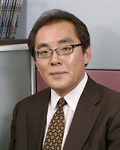
Professor, Department of Civil and Environmental Engineering, Graduate School of Engineering, Gunma University
Director, Research Center for Disaster Prevention in the Extended Tokyo Metropolitan Area
Director, Research Center for Disaster Prevention in the Extended Tokyo Metropolitan Area
Toshitaka Katada
片田 敏孝
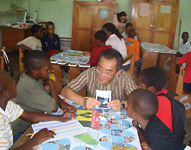
The onset of global warming has brought natural disasters to many parts of the world. It is imperative that international assistance be provided to developing countries in the wake of major disasters, but the nature of this aid must be tailored to the country or region in question. In the same way, when planning disaster prevention initiatives for foreign residents in Japan, we need to understand the cultures and environments from which those residents come, and use that understanding as the basis for familiarizing them with the social systems of Japan. To achieve this, we need to cultivate more community leaders with a multicultural mindset in the field of disaster prevention.
I hope that many of you will enroll in this training course and develop into individuals who can contribute to the creation of a fully-fledged multicultural society.
I hope that many of you will enroll in this training course and develop into individuals who can contribute to the creation of a fully-fledged multicultural society.

